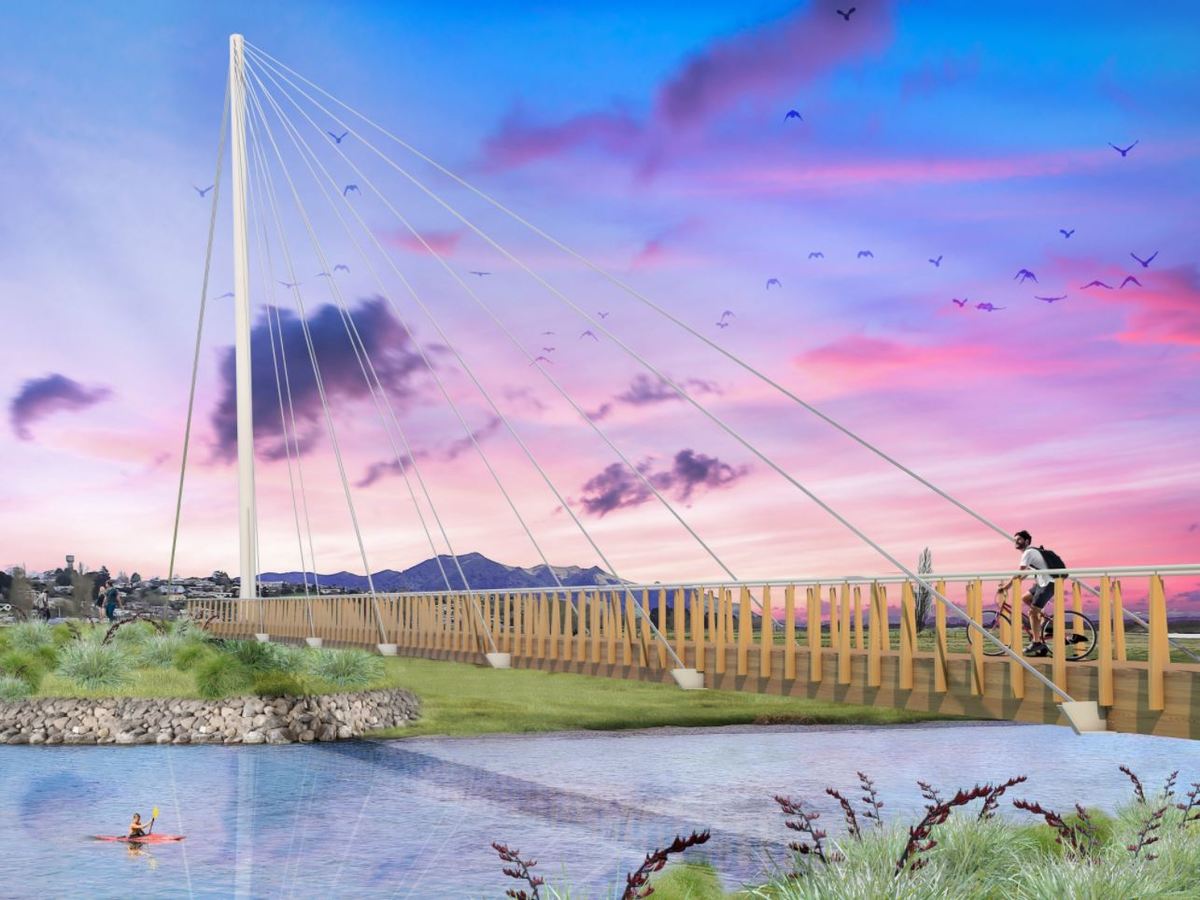Gore bridge appeal to Environment Court
Paul Taylor
21 May 2021, 2:54 AM
 An artist's impression of the proposed bridge. Image: Gore District Council
An artist's impression of the proposed bridge. Image: Gore District CouncilAn appeal has been lodged with the Environment Court against a decision to allow the Gore District Council to build a bridge across the Mataura River.
An independent hearing panel last month approved resource consent applications from the council to construct the bridge, about 650m upstream of Gore’s existing traffic bridge.
The panel was delegated to make a decision by both the Gore District Council and Environment Southland.
The cable-stay bridge would carry new water pipelines linking the upgraded East Gore water treatment plant with the Jacobstown Wells and Hilbre Avenue reservoir.
It will also provide a link between east and west Gore for cyclists and pedestrians.
The appeal is from the Waimea Plains Landscape Preservation Society Incorporated (WPLPS). It is signed by its chairman, Gore lawyer David Gray.
It details a dozen reasons why the application should be refused.
They include that the panel "gave undue weight to the purported positive effects or the proposal and relied on a reverse-engineered evaluation of alternatives for a proposal that has been presented from the outset by the [council] as a fait accompli."
That was demonstrated by the fact the council had bought land next to the river for the bridge in mid 2020, WPLPS claims.
Overall, WPLPS believes the panel did not give proper consideration of the negative impact of the bridge on nearby residents, particularly the visual impact of the 32m mast and lighting.
The Southland App has approached Gray for comment.
Independent planning consultant Keith Hovell said WPLPS, as the appellant, has five working days to serve a copy of its appeal on all persons who lodged a submission to the resource consents.
"Any submitter has a right to become a party to the appeal, provided they notify the Environment Court no later than 11 June."
Any submitter considering joining the appeal should be aware the Notice of Appeal limits the matters the Court is able to consider. In seeking to become a party to the appeal, no additional matters can be raised, Hovell said.
The process and its timing is now in the hands of the Environment Court.
"The usual procedure is for the Court to determine if the parties are willing to go to mediation. If so, that will be initiated."
If there is no mediation, or if there is no resolution of issues arising from the mediation, the Court will set a timetable for the preparation and exchange of evidence between the parties.
A formal hearing will follow, but again the timing of this is determined by the courts, Hovell said.



